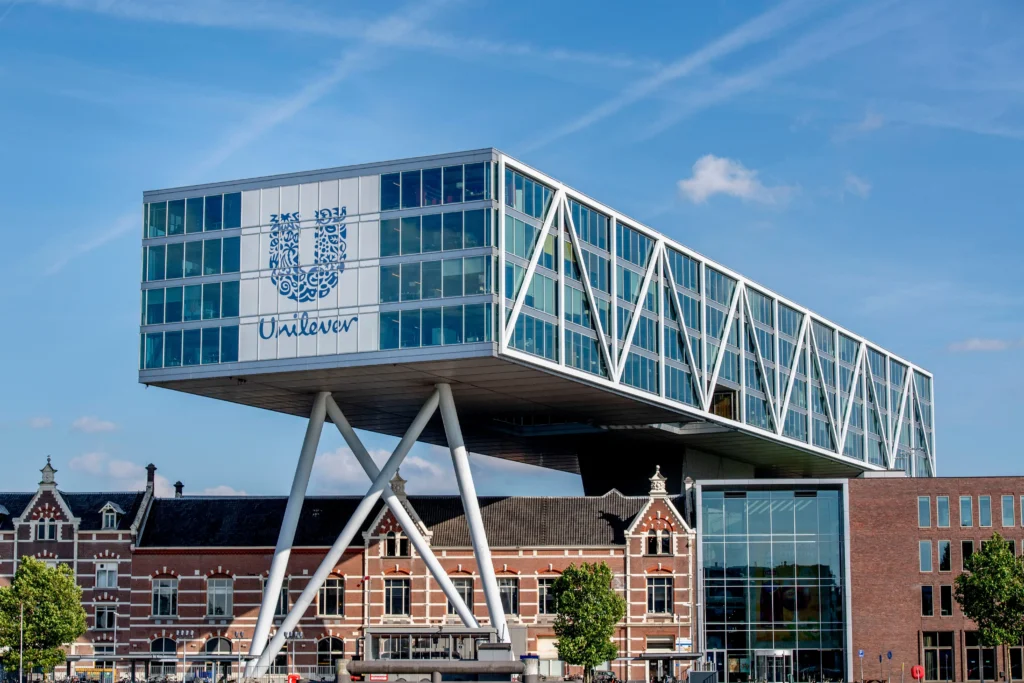Unilever’s Bold Climate Advocacy: Driving Systemic Change

Executive Summary:
Unilever intensifies its climate advocacy efforts to accelerate emissions reduction and support global net-zero goals. By collaborating with coalitions and pushing for transformative policies, Unilever aims to create a sustainable future.
Key Impact Points:
- Advocacy for Systemic Change: Unilever’s Climate Transition Action Plan focuses on global value chain transformations and public policy advocacy.
- Renewable Energy Push: Calls for tripling global renewables capacity by 2030 and supports initiatives like RE100.
- Regenerative Agriculture and Chemical Innovation: Promotes sustainable farming and industry transformation for lower emissions in chemical production.
Unilever Steps Up Climate Advocacy to Drive Systemic Change
To meet our ambitious climate goals, Unilever is ramping up its advocacy efforts to address barriers to faster emissions reduction. We aim for systemic changes that involve global value chain transformations, technological innovations, and supportive public policies.
Why Advocacy Matters: “To transition to net zero, we must rewrite the rules of the global economy,” says Thomas Lingard, Unilever’s Global Head of Sustainability – Environment. Policy change is crucial, and businesses must vocalize their needs and challenges. By applying pressure, businesses can help governments enact laws that create a level playing field and encourage swift, large-scale action.
Key Systemic Changes Needed: Unilever’s updated Climate Transition Action Plan (CTAP) calls for:
- Renewable Power: As part of the RE100 initiative, Unilever signals demand for clean energy solutions globally. In 2023, Unilever signed an open letter urging policymakers to triple global renewables capacity by 2030, a goal agreed upon at COP28. This policy change aids our transition to 100% renewable energy by 2030 and supports our suppliers’ decarbonization efforts.
- Regenerative Agriculture: “Regenerative agriculture is critical for our business,” says Lingard. Unilever aims to implement regenerative practices on 1 million hectares by 2030, supporting our goal to reduce emissions from land and agriculture by 30.3% by 2030. We lobby for policies that help farmers transition to these practices, including incentive schemes and financial support, focusing on the US, EU, and India.
- Chemical Innovation: Lowering emissions from chemicals is part of our CTAP. “We need chemical ingredients not made from fossil-fuel-based feedstocks,” notes Lingard. Unilever hosted a panel in Brussels to discuss policy interventions needed to reduce emissions from chemical ingredients and is driving change through platforms like the Resource Efficiency and Circular Economy Coalition in India.
Working with Coalitions and Trade Associations: “Effective advocacy requires support from other powerful actors,” says Lingard. Unilever collaborates with cross-industry coalitions like the WBCSD and We Mean Business Coalition’s Fossil to Clean campaign. We also push trade associations to be transparent about their climate positions, calling for improvement where necessary.
Optimism for Impact: Lingard expresses confidence in the power of business advocacy: “Companies are realizing the systemic nature of the challenge. It’s not enough to just use renewable energy. They need to influence policies to meet ambitious climate targets.”
Related Article: EY, Unilever and USAID Launch the CIRCLE Alliance to Support Entrepreneurs in Tackling Plastic Waste
Unilever’s proactive stance on climate advocacy is recognized by InfluenceMap, placing us among the top corporate advocates for ambitious climate policy worldwide.












